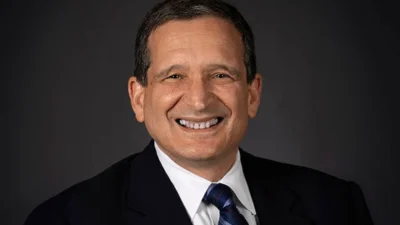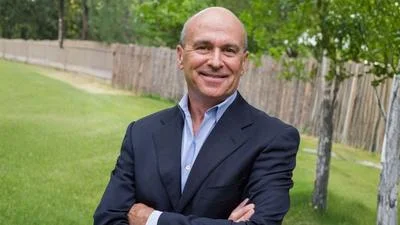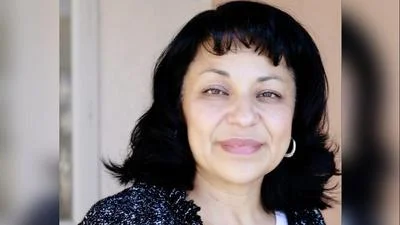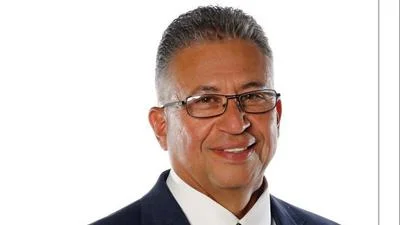Local pro-business nonprofit organization New Mexico Business Coalition (NMBC) hosted a Business and Social Hour (BASH) last month, during which a job interview-style discussion was held with Albuquerque mayoral candidates Tim Keller and Manny Gonzales, who face off in the Nov. 2 election.
Keller is Albuquerque's incumbent mayor, while Gonzales is in his second term as Bernalillo County Sheriff. During the "job interviews," the two candidates were asked by a "hiring committee" about hot-button issues including homelessness, public safety, economic development and issues specific to each campaign.
When asked about his plan to address increasing homelessness in the city, Keller mentioned that under his leadership, Albuquerque was able to house hundreds of the city's homeless population in empty hotels during the pandemic and kept a shelter on the west side of the city open 24/7, which he noted has never been done before. He also brought up the city's purchase of the Gibson Medical Center to give the homeless population an alternative to being on the street.
Gonzales criticized Keller's policies on homelessness and questioned if doing things like putting up the homeless in hotels was actually inviting the homeless to the city and increasing Albuquerque's homeless problem. He cited a statistic of homelessness increasing by 30% over the last four years and said he does not support "bird feeder" policies.
On matters of supporting city mandates on businesses, Keller mentioned that he vetoed the gas tax but also raised taxes to fund the police. He stated that "part of being a leader is not making promises you can't keep and, it depends on the mandate."
Keller's opponent stated that he opposed government mandates on businesses that would make it harder for them to operate in the city or the state. He noted that it is already "too difficult to do business in the city of Albuquerque" and government shouldn't be imposing mandates that make it even harder. Pointing out businesses moving to Texas or Arizona, Gonzales said the city should implement policies that make for a more business-friendly environment that removes "red-tape," rather than the other way around.
When Keller was asked about breaking a promise from his previous campaign to not raise taxes without voter approval, he stressed the importance for leaders to "do the best you can with the knowledge you have at the time." He went on to characterize the decision to raise taxes as a choice between breaking a campaign promise and "literally keeping the city together," and called it his "most courageous" leadership decision.
Gonzales was asked about campaign finance issues within his campaign that have resulted in fraud charges. He stated that the campaign staffer who was responsible was already in the process of being removed from the campaign when the fraud came to light because the staffer was "undermining the campaign."
Gonzales also emphasized the importance of accountability, citing his experience as sheriff as evidence of how he would handle such issues moving forward.
Keller was asked if he would support "sanctuary status" for Albuquerque and replied that he has always supported the city having an "immigrant-friendly status." He added that the city needs immigrants to work with police officers to keep the community safer.
Gonzales opposes the city of Albuquerque becoming a "sanctuary city" and said that he would not want to implement policies that pit U.S. citizens against someone coming into the country from a public safety standpoint. He also emphasized a desire to "hold to the Constitution." He reiterated that he wants to have "policies that are people-centric and not party-centric."
When asked how he plans to keep the community safer in the face of increased crime — both violent crimes and property crimes — Keller referenced more than $30 million in technological updates he supported for the APD and added that those updates have led to a decrease in property crimes and auto thefts, despite the rate of violent crime increasing.
In response to the same question, Gonzales said that he had a three-point solution to change things at the APD. The sheriff said he would start with a leadership change at the department, followed by a de-politicization of the department.
Finally — as a result of the first two — Gonzales would like to see culture changes at APD in the name of public safety.
In regard to economic development, the NMBC panel asked if the candidates supported public-private partnerships and taxpayer-funded economic development incentives. Keller said he does support public-private partnerships, bringing up specific examples he believes have helped the local economy throughout his term.
He also pointed to these partnerships and economic incentives as the tipping point for the 6,000 new jobs that are on the horizon for the city.
Like his opponent, Gonzales said he does support public-private partnerships because they not only can help with economic development, but with the issue of increasing crime in the city. When it comes to law enforcement, Gonzales believes public-private partnerships can help decentralize resources and ensure that all of the citizens of Albuquerque have the same access to them.
When asked what made him the best candidate for the job, Keller pointed to his record of leadership throughout the pandemic saying the city saved hundreds of businesses through city grants and without federal money.
"I am here to help our city over the long run. . . . I need another four years," he said, adding that he was the "only one positioned to make good on what our city needs."
Gonzales cited his time in law enforcement as proof that he would truly be a servant of the community, even willing to lay down his life.
"We will no longer be number one in crime and have the worst economy in the country ever again, as long as I'm mayor," he said.








